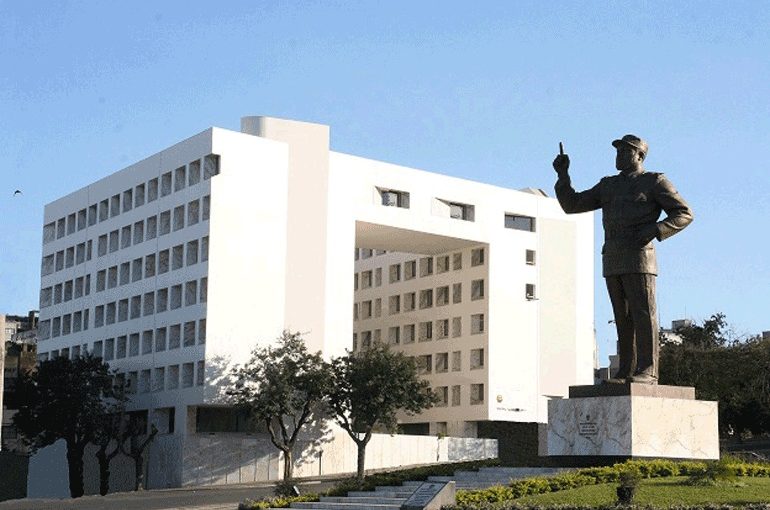Mozambique: Construction of US-funded bridge and ring road in Zambézia to begin in 2026
Mozambique: Administrative Tribunal audit criticises Housing Development Fund

File photo: Tribunal Administrativo
An audit by the Mozambican Administrative Tribunal (TA) of the State’s Housing Development Fund (FFH) has concluded that it does not contribute to providing access to social housing for the most disadvantaged population, accusing it of “wasting” funds.
The matter concerns an audit of the FFH’s housing projects up to 2022 accessed by Lusa today, with the TA explaining that the analysis “focused on fundamental aspects such as planning, implementation, and monitoring of housing developments”.
It concludes, regarding the FFH, created 30 years ago, and after “analysing the findings resulting from the audit and the responses provided”, that it “does not comply with the 3Es (Economy, Efficiency and Effectiveness)”, which “contributes to the failure to achieve the objective of providing social housing to the low-income population”.
“With regard to economy, there is a waste of monetary values, as projects are implemented that do not correspond to the target audience, thus contributing to their abandonment,” it states.
“They are not efficient and effective insofar as there is no needs plan that identifies the real situation of the country regarding access to housing, taking into account the characteristics of each region,” the audit states, adding that “weaknesses were identified in relation to feasibility studies”, which “should be continuous and involve all stakeholders in the process”.
“It is important to intensify project dissemination activities to ensure that the real beneficiaries are aware of and included in the selection of projects to be implemented. An effective monitoring mechanism at all stages of the projects can help the FFH to identify problems and solve them in a timely manner,” the TA stresses.
The same document adds that during the response process explanations were presented, but with “an unrealistic action plan, making it impossible to understand how and when the existing shortcomings will be resolved”, which “will make it difficult for the TA to carry out the respective monitoring and evaluation”.
According to a message from TA president Ana Maria Bié included in the report, the decision to audit this area “was motivated by the need to assess accessibility to projects for the most disadvantaged, as well as to evaluate the quality of constructions and the fulfilment of the FFH’s social mission”, with the aim of “avoiding the weakening of public policies, thus increasing citizens’ confidence in state institutions”.
The document recalls that access to housing in Mozambique “continues to be a major challenge, especially for young people”, and that “many projects aimed at this group have high costs, making them inaccessible to most”.
“To try to respond to the needs of young people with fewer resources and at the start of their careers, the Government, through the FFH, launched in 2020 the Renascer Project. However, there were several criticisms regarding the poor quality of the works, the use of inadequate materials, and the small size of the houses, which generated discontent among young people,” the report’s conclusions state.
It also notes that, “although the FFH claims to prioritise social housing, its actions have followed a commercial logic, which has led to more complaints from those seeking decent housing”.
And it identifies the “non-compliance with criteria” in the selection of candidates for social housing projects, recalling that, according to the Ministry of Public Works, Housing and Water Resources, these include young people, civil servants, state agents and veterans “who do not own a house, or who own housing in precarious conditions”.
However, in the analysis of implemented projects, among other criticisms, the audit states that it found the sale of “some houses to public institutions and to individuals with the financial capacity to make full payment at the time of purchase”.
“This practice contradicts the objectives of the project, which was designed to benefit young people, civil servants, state agents and veterans with monthly incomes between 4,000 and 65,000 meticais [US$54 to US$875], allowing them access to housing through instalment payments over a period of 15 years,” it reads.












Leave a Reply
Be the First to Comment!
You must be logged in to post a comment.
You must be logged in to post a comment.